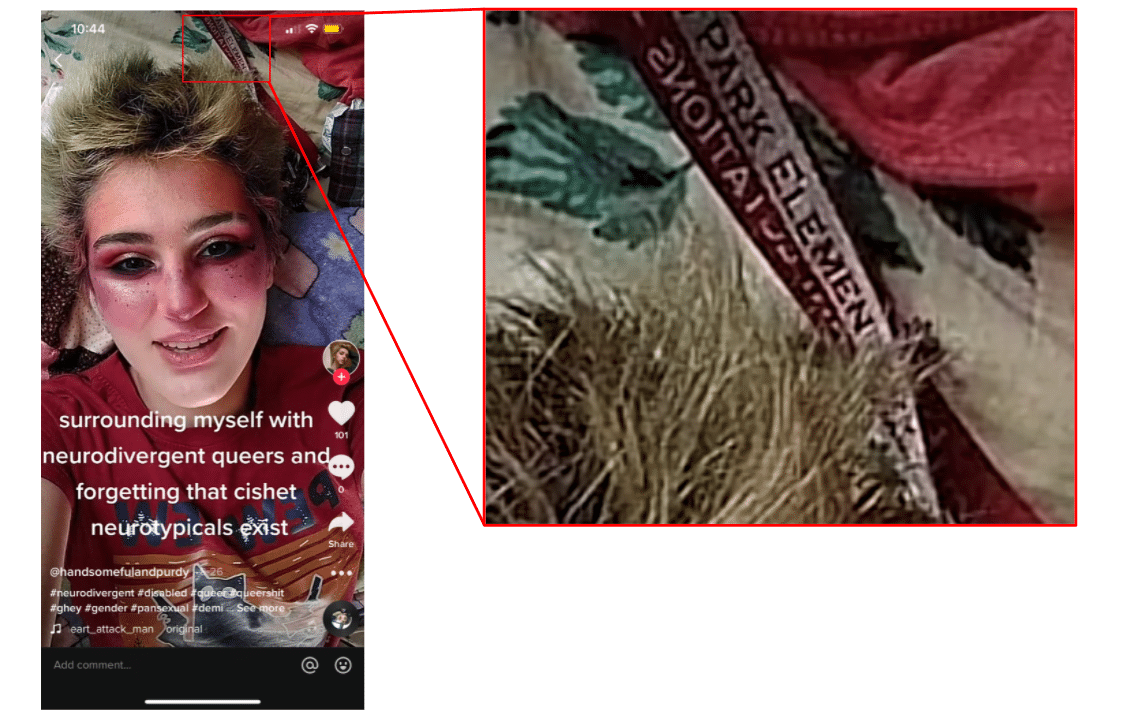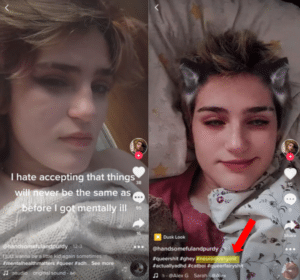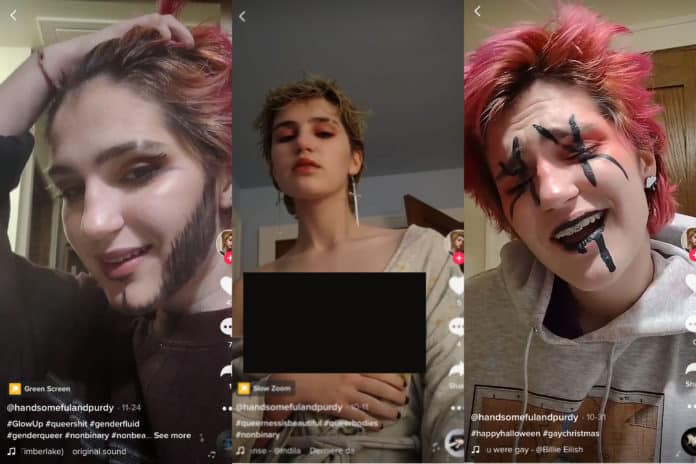A self-described preschool teacher who appears to live in St. Paul brags on social media about “normalizing queerness from a young age” even if parents don’t want her to.
The teacher, who goes by “handsomefulandpurdy” on TikTok, describes herself as “an openly non-binary trans preschool teacher” who “talk[s] to [her] students about pronouns, transness, gender expression and sexuality.”
She says her goal in introducing “queer” culture to 3-5-year-old preschool children is to help the kids who “later on realize they are queer” feel accepted and to make the straight students into “wonderful and accepting allies who have had this normalized in their lives from a young age.”
“If you normalize queerness from a young age the more likely you are to be accepting,” she said in a video she posted.
Preschool teacher 😳 pic.twitter.com/Rp3uSLOnfP
— Libs of Tik Tok (@libsoftiktok) December 27, 2021
The scenery in some of her videos indicates she lives in St. Paul and she’s been widely reported to reside in Minnesota.
Minnesota preschool teacher admits to grooming kids pic.twitter.com/ai4SWJCRFS
— Libs of Tik Tok (@libsoftiktok) December 28, 2021
Her real name and the specific school where she teaches remain a mystery. However, in a video she posted about building a friend group comprised entirely of “neurodivergent” people, she appears to own a lanyard that says “Park Elementary” in red and white font. In another post, she claims to “work at a Montessori preschool in Minnesota.”

Her opinions on addressing queer issues in the classroom have generated social media backlash. Some users who also claim to be teachers say her approach to dealing with sexuality and young children is incorrect.
“Preschool teacher here,” one commenter wrote. “That subject matter is completely inappropriate for school and should be reported asap!” This comment garnered over 7,500 likes and several comments from other teachers who concurred.
She’s also made several posts about how “neurodivergent” she is herself. One of these TikToks features a filter to make it look like she has cat ears, a possible nod to the “furry” community — a group of disproportionally LGBTQ people who derive pleasure from dressing up like animals.

This isn’t the only fetish she’s alluded to on her TikTok profile either. She’s posted about her “brat,” an apparent reference to a BDSM dynamic she maintains with her partner. The post is hash-tagged “queershit.”
Other posts on her account feature her topless, dancing in underwear and wearing a variety of other revealing outfits that many might consider unbecoming of a preschool teacher.
She even reports being banned from posting on TikTok for a time, as the platform deemed her content unsafe for children on the app.
Harm to young people
TikTok is not alone in its skepticism regarding this preschool teacher’s brand of content. Many experts have warned that promoting LGBT themes in the classroom, especially among young children, can have a negative impact on their development. In 2016, researchers concluded that about .4% of the U.S. population identifies as transgender. However, by this year, 1 in 6 members of Gen Z (born 1997-2012) identified as LGBTQ, many of them transgender, per another study. Although it is exceedingly difficult to draw a causal link, this radical shift in the sexuality of America’s children coincided with the movement to promote LGBTQ themes in schools.
Skeptics suggest that the promotion of alternate sexualities and gender identities hasn’t caused more people to adopt said identities, but rather that as U.S. culture becomes more accepting more people choose to come out. If this were true, however, one would expect to see a similar increase in trans representation across age demographics. This has not happened. Instead, America’s ballooning trans population is due in large part to an increase of transgender young people.
Additionally, as educators promote transgenderism and more children adopt this identity, there has been a growing demand for “gender-affirming” treatments for minors. This usually means hormone therapy but can include surgical interventions. Vox has even suggested that putting children on transgender hormones is a good idea, even if they turn out to not be trans.
Their article titled “It’s okay to let your transgender kid transition — even if they might change their mind in the future” tells the story of one such child, in a positive light:
“After four months on the hormonal medications, she decided she did not identify as female but rather as gender nonbinary (neither male nor female) and would use the gender-neutral pronouns they, them, and theirs. At this point, they also stopped the medications and went through male puberty.
Alex, whose case I described recently in the journal JAMA Pediatrics with two other Harvard physicians, has no regrets about taking the hormones. Though the hormones left Alex with some cosmetic changes — redistribution of body hair and fat — Alex says they were necessary to fully solidify their gender identity.”
Meanwhile, many doctors openly question this practice. Writing for The Wall Street Journal, Dr. George Comerci highlights how no “rigorous, long-term data exists for the widespread and liberal treatment of gender dysphoria in children and adolescents. Further, it is not at all clear that a child or young adolescent has the maturity, insight and forethought to ethically consent for such life-altering therapy.”














